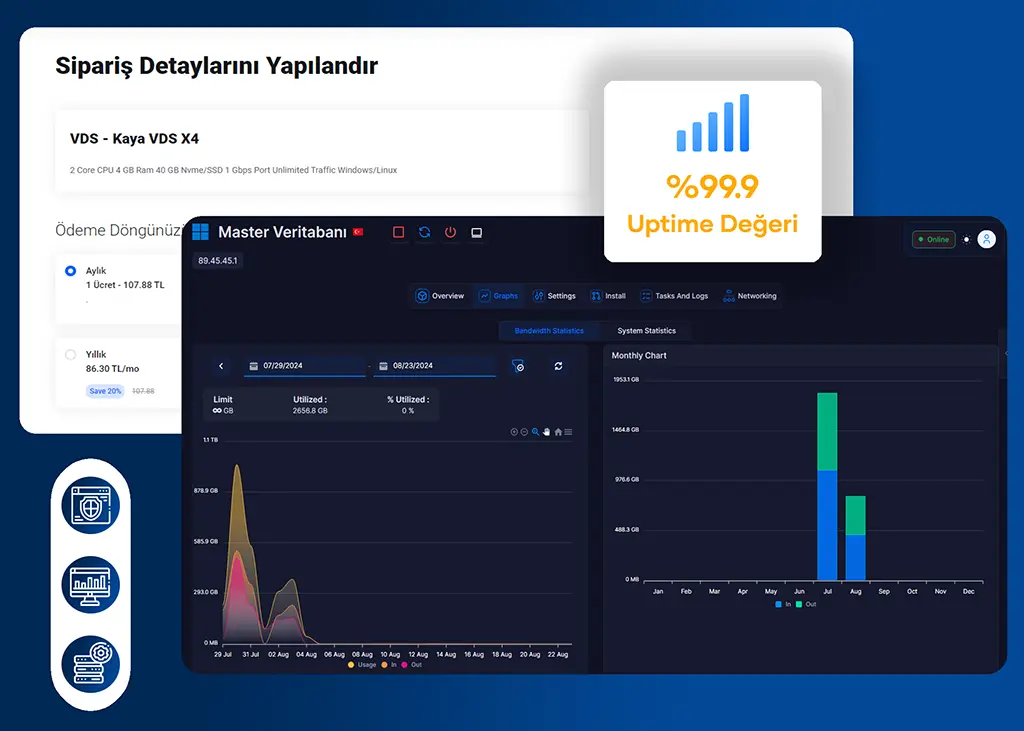VPS
Our VPS Locations Available Worldwide
Boost flexibility and security by using VPS servers from multiple global locations, without being tied to one place.
Europe
 Bursa, TR
Bursa, TR London, UK
London, UK Sofia, BG
Sofia, BG Limburg, DE
Limburg, DE
North America
 New York, USA
New York, USA Los Angeles, USA
Los Angeles, USA Miami, USA
Miami, USA Dallas, USA
Dallas, USA Québec ,CA
Québec ,CA
Others
 Sydney, AU
Sydney, AU Karachi, PK
Karachi, PK Singapore, SG
Singapore, SG
OS
 Windows
Windows Linux
Linux
CLOUD VPS SERVER
Renting a server is now exceptionally straightforward with our Cloud VPS server packages, featuring a 100% NVME infrastructure and exceptional reliability.
Processor
Ram
Disk
Connection
Traffic
OS
Cost
Automatic Installation
Aydın VPS x4
2 vCpu Ryzen
2 vCpu Ryzen
4GB
40GB NVME
1000Mbps Port
Unlimited
Traffic
Traffic
$5.90 instead
$2.99
/Month
Aydın VPS x8
4 vCpu Ryzen
4 vCpu Ryzen
8GB
60GB NVME
1000Mbps Port
Unlimited
Traffic
Traffic
$7.90 instead
$4.65
/Month
Aydın VPS X12
4 vCpu Ryzen
4 vCpu Ryzen
12GB
90GB NVME
1000Mbps Port
Unlimited
Traffic
Traffic
$9.90 instead
$6.99
/Month
Aydın VPS x16
6 vCpu Ryzen
6 vCpu Ryzen
16GB
120GB NVME
1000Mbps Port
Unlimited
Traffic
Traffic
$12.90 instead
$8.90
/Month
Aydın VPSX24
6 vCpu Ryzen
6 vCpu Ryzen
24GB
180GB NVME
1000Mbps Port
Unlimited
Traffic
Traffic
$15.90 instead
$11.90
/Month
Aydın VPS x32
6 vCpu Ryzen
6 vCpu Ryzen
32GB
180GB NVME
1000Mbps Port
Unlimited
Traffic
Traffic
$18.90 instead
$15.90
/Month
Why Choose Us?
Global Locations: 24-hour average bandwidth usage above 500 Mbps may be limited to 100 Mbps.
Turkey, Australia, Pakistan: 24-hour average bandwidth usage above 100 Mbps may be limited to 10 Mbps.
The fair-usage policy ensures that high-traffic activities such as streaming or torrenting do not negatively affect system performance.







